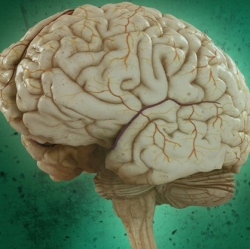
After 13 years as the director of the National Institute for Mental Health, Dr. Thomas Insel is starting a new job. Insel will be working at Google, as a leader of the Google Life Sciences division, an independent company under the Alphabet umbrella. Insel sees the tech sector as the answer to detecting, diagnosing, and treating mental illness.
“Technology can have greater impact on mental healthcare than on the care for heart disease, diabetes, cancer or other diseases,” he said in an interview at Chicago Ideas Week. “It could transform this area in the next five years.”
At the national institute, Insel prioritized funding for research of the most severe mental illnesses, like schizophrenia. He was previously the director of the Center for Behavioral Neuroscience at Emory University, where he studied how brain chemicals affect behavior like infidelity and parental attachment.
The details of his new job description are still under wraps. “I don’t know what I’m going to be doing, and I think they don’t either,” he said. “They’re an amazingly secretive company.”
But he said it was an offer he “couldn’t refuse.” He sees potential in using Google’s analytics and data-mining tools to pilot new research on mental health.
Right now, he said, America’s system of treating mental illness is “dysfunctional.” He’s disappointed at the high levels of people who don’t get treatment and his failure during his time at the national institute at driving down suicide rates.
“We’re not seeing any reduction in mortality in terms of suicide because we’re not giving people the care that they need,” he said. “We would never allow this to happen for cancer, for heart disease, for diabetes.”
He imagines creating “sensors that give you very objective measures of your behavior.”
“We do that already for how many steps you’ve had and your activity,” he said, pointing to the Fitbit strapped to his wrist, “but this would be doing it for mood, for cognition, for anxiety. It’s really actually very doable.”
The sensors would measure sleep, movement, and have you take clinical tests in order to measure mental health. Other tools could analyze someone’s language use for early signs of psychosis.
